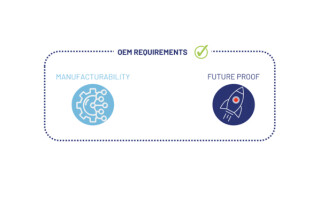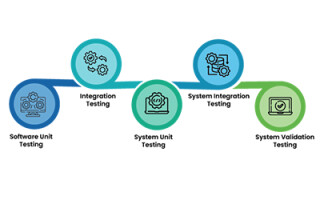Why data analytics departments are hiring engineers
July 13, 2017
Blog
New focus on data management and data quality has led to the increased inclusion of engineers in the world of data science.
Every day a staggering amount of new data is created. Social media alone produces billions of new messages, likes, posts, and photos. By the end of 2019, experts predict that nearly 250 billion emails will be sent every day. And then there’s the data collected from online searches, GPS transmissions, and more. According to an IBM report published in 2016, there are nearly 2.5 quintillion bytes of data created every day, meaning that more about 90 percent of the data in existence at any moment was created within the last two years.
This proliferation of data has created our new, data-driven society. Virtually no aspect of our lives isn’t influenced by data these days, from the advertisements we see on our news feeds to the placement of canned peas on grocery store shelves. By carefully analyzing data, businesses can gain insights that allow them to be more efficient, nimbler, and more in tune with customer needs and wants. Data has also created a wealth of new job opportunities, most specifically within data analytics, as businesses attempt to make sense of data and glean valuable insights from it. However, as the amount of data created grows, the focus is shifting away from “What can we learn from these reams of data?” and toward “How can we better manage data so that it gives us information we can use?”
This new focus on data management and data quality has led to the increased inclusion of engineers in the world of data science. In fact, engineers are in high demand in data analytics departments, causing many individuals who wouldn’t normally have considered a career in data to complete engineering degrees online and pursue this new field.
Data science vs. data analytics vs. data engineering
To begin exploring why data engineers are in such high demand, it’s useful to explain the differences between the interrelated, yet still different, terms data science, data analytics, and data engineering.
Data science is most commonly used as the overarching term to describe the tools and methods applied to data sets to pull out knowledge and insights. Using scientific methods, mathematics, statistics, algorithms, and other tools, data science seeks to create connections within data that may not be immediately obvious and then bring all the points together to create something useful from that information.
Data analytics is similar to data science, but in a more focused manner. It’s the actual process of looking at data and pulling out the insights and making recommendations based on it. For instance, data analysts will review data based on where items are located on store shelves, typical customer traffic patterns, sales data, and other factors to determine that a particular store should order six cases of canned peas and place them on the third shelf from the top, while another store only needs four cases and they should be on the fourth shelf down.
While data analysts are focused on looking at the specifics of the data and how to put it to work, data engineers are charged with creating the systems and processes necessary to produce that data. He or she is involved with creating the architectures for data collection, such as databases and processing systems, all with an eye toward making sure that the data collected is usable and of high quality. All too often, data includes errors, invalid records, isn’t in the right format, or otherwise unusable, and the data engineer is responsible for creating solutions that prevent that from happening. They are also responsible for making sure that analysts have the data in a usable format, and that the processes for modeling, mining, and production are in place.
Although data science in general has attracted individuals with backgrounds in computer science and mathematics, many electronics and electrical engineers also have the skills and training in technology, math, and data science necessary to meet the demand. However, some caution that data engineering is ideal only for those who have strong quantitative abilities, as well as an understanding of business principles. Experience in programming languages is also a requirement for most jobs in this field.
As the rate of data creation increases, so will the need for knowledgeable individuals to work with it and gain actionable insights. Without data engineers to ensure that data flows smoothly and accurately from the source to the processors so it can be analyzed, businesses will lose out on the competitive advantage that can be gained from a deeper understanding of their customers.




